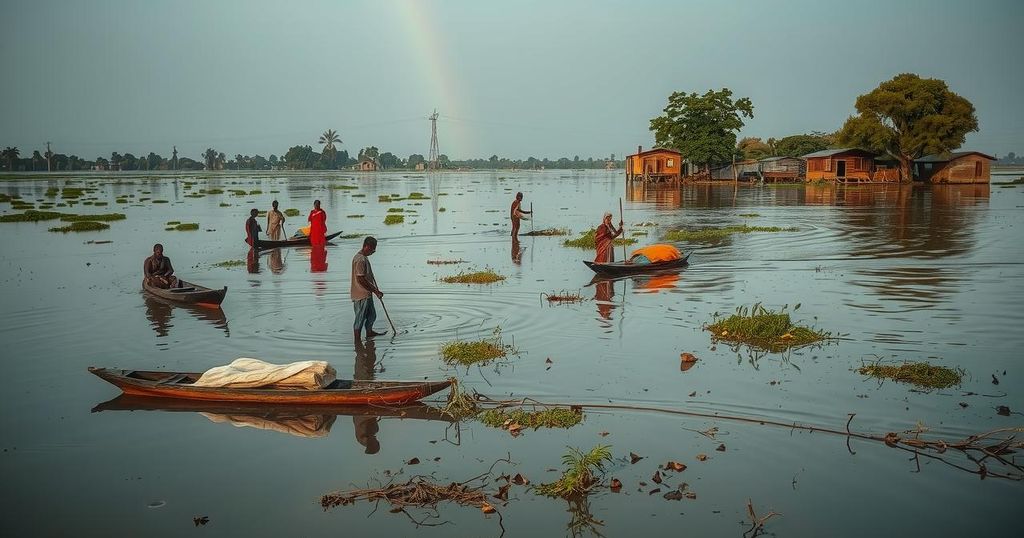Severe Flooding Displaces Thousands in South Sudan, Malaria Surge Reported

Flooding in South Sudan has displaced over 300,000 individuals and affected approximately 1.4 million people. The situation is further compounded by a surge in malaria cases, straining the healthcare system. Jonglei and Northern Bahr el Ghazal states are particularly impacted, urging immediate humanitarian response.
Recent reports from the United Nations indicate that flooding in South Sudan has severely affected approximately 1.4 million individuals and displaced over 300,000 residents. The United Nations Office for the Coordination of Humanitarian Affairs (OCHA) highlighted that the floods struck 43 counties, particularly impacting Jonglei and Northern Bahr el Ghazal states, which account for more than half of the affected population. Additionally, the floods have incited a concerning rise in malaria cases across several states, placing further strain on an already overwhelmed healthcare system. The latest assessments revealed that an additional 1,720 individuals have been displaced due to the flooding in Mangalla, located in Central Equatoria State. This surge in malaria cases has been noted particularly in Jonglei, Unity, Upper Nile, Northern Bahr el Ghazal, and parts of Western Equatoria. The United Nations emphasizes that these health crises are occurring alongside tragic displacements due to extensive flooding that commenced in May 2024, which resulted from excessive rainfall and the overflow of the Nile River. Climate change has exacerbated flooding conditions in South Sudan, with UNICEF forecasting that floods will continue to displace between 750,000 and more than one million people annually. Such environmental issues have directly contributed to the repeated devastation of homes and livelihoods, making the challenges faced by South Sudan increasingly dire. In summary, the health crisis, primarily due to the alarming increase in malaria, coupled with a humanitarian catastrophe driven by severe flooding, calls for urgent international attention and assistance.
The flooding situation in South Sudan is critical, affecting vast numbers of residents and leading to significant humanitarian challenges. Since May 2024, South Sudan has faced recurrent flooding exacerbated by severe rainfall and overflowing riverbanks, particularly along the Nile River. This crisis intersects with broader issues of climate change, which have intensified flooding patterns and adversely affected agricultural production and livelihoods. The United Nations has been actively reporting on the fallout from these floods, emphasizing the urgent need for aid and support to mitigate the impact on the affected populations.
In conclusion, the flooding crisis in South Sudan has displaced over 300,000 people while impacting approximately 1.4 million residents. The health situation is further undermined by a spike in malaria cases, creating a dual crisis that requires immediate humanitarian intervention. The role of climate change in exacerbating these conditions underscores the need for long-term solutions to address both environmental and health challenges faced by the nation.
Original Source: www.aninews.in







